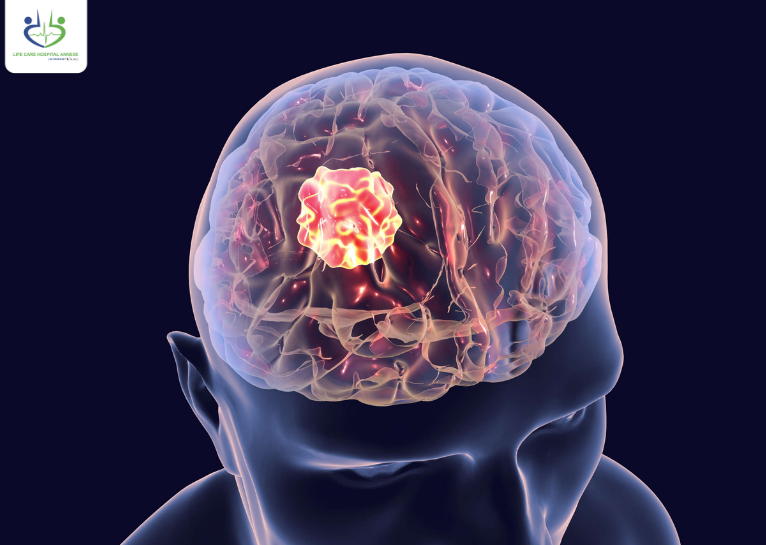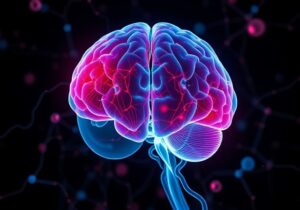Brain tumors are serious health conditions that can affect anyone, regardless of age. Primary brain tumors originate within the brain itself, while secondary (or metastatic) brain tumors spread to the brain from other parts of the body. Early detection and treatment are critical for improving outcomes and enhancing the effectiveness of medical interventions.
In this article, we will discuss the common early warning signs of brain tumors, specific types such as Acoustic Neuroma and Glioma, and the crucial benefits of early treatment.
Early Warning Signs of Brain Tumors
Recognizing the early symptoms of a brain tumor is key to timely diagnosis and treatment. Symptoms vary depending on the tumor’s location, size, and type, but some common signs to watch for include:
1. Persistent Headaches: Frequent, persistent headaches are often one of the first indicators of a brain tumor. These headaches may differ in intensity, frequency, and response to pain relief, and are often more severe in the morning or during activities like coughing or bending over.
2. Changes in Vision or Hearing: Brain tumors can impact the senses, particularly vision and hearing. For instance, an Acoustic Neuroma, which develops on the nerve connecting the ear to the brain, can cause hearing loss, tinnitus (ringing in the ears), and balance issues. Other types of tumors may lead to blurred vision, double vision, or loss of peripheral vision.
3. Seizures: Sudden, unexplained seizures are a significant warning sign of a brain tumor. Seizures occur due to abnormal electrical activity in the brain and can present as convulsions or unusual sensations.
4. Nausea and Vomiting: Nausea and vomiting, especially in the early morning, are common symptoms of brain tumors. These symptoms often accompany headaches or dizziness and result from increased pressure inside the brain.
5. Weakness and Numbness: Weakness or numbness in the limbs may indicate a brain tumor affecting the areas of the brain that control movement. Severe cases can lead to coordination problems, balance issues, or even paralysis.
6. Cognitive and Behavioral Changes: Brain tumors can alter cognitive functions and behavior, leading to memory loss, confusion, difficulty concentrating, mood swings, and personality changes. These symptoms may be subtle at first but can become more pronounced as the tumor grows.
Understanding Different Types of Brain Tumors
Brain tumors can vary significantly in their symptoms and required treatments. Two common types are Acoustic Neuroma and Glioma:
- Acoustic Neuroma: A slow-growing, typically non-cancerous tumor that affects the nerve connecting the ear to the brain. While not cancerous, its location can cause significant problems, including hearing loss, tinnitus, balance issues, and facial numbness.
- Glioma: A type of tumor that arises from the supportive tissue of the brain. Depending on its size and location, a glioma can cause headaches, seizures, cognitive decline, and motor function impairments.
The Importance of Early Detection and Treatment
Early detection and treatment of brain tumor are vital for improving patient outcomes. Here’s why prompt medical attention is crucial:
1. Better Prognosis: Early diagnosis often leads to a better prognosis, particularly in cases of malignant tumors. Early treatment can slow tumor growth, reduce symptoms, and improve the patient’s quality of life.
2. Reduced Complications: Timely treatment helps prevent complications such as neurological damage, which can occur if a tumor is left untreated. For example, an untreated Acoustic Neuroma can lead to permanent hearing loss, while an untreated Glioma can cause severe cognitive and motor impairments.
3. More Treatment Options: Early detection allows for a wider range of treatment options. Treatments may include surgery, radiation therapy, chemotherapy, and targeted therapy. When diagnosed early, treatments can be less invasive and tailored to the patient’s specific needs.
4. Psychological Support: Early awareness of a brain tumor diagnosis allows patients and their families to access psychological and emotional support sooner, helping them cope better with the challenges ahead. It also facilitates communication with support groups and healthcare professionals.
5. Improved Quality of Life: Brain tumor can significantly impact quality of life. Early treatment, especially for benign tumor like Acoustic Neuroma, is essential not only to manage symptoms but also to minimize the tumor’s effect on daily life.
Conclusion
Brain tumor are critical health conditions that require urgent attention. Early detection plays a crucial role in improving treatment outcomes and prognosis. Recognizing the warning signs and seeking medical consultation promptly can make a significant difference. If you experience any of the symptoms mentioned, consult a healthcare professional immediately.







